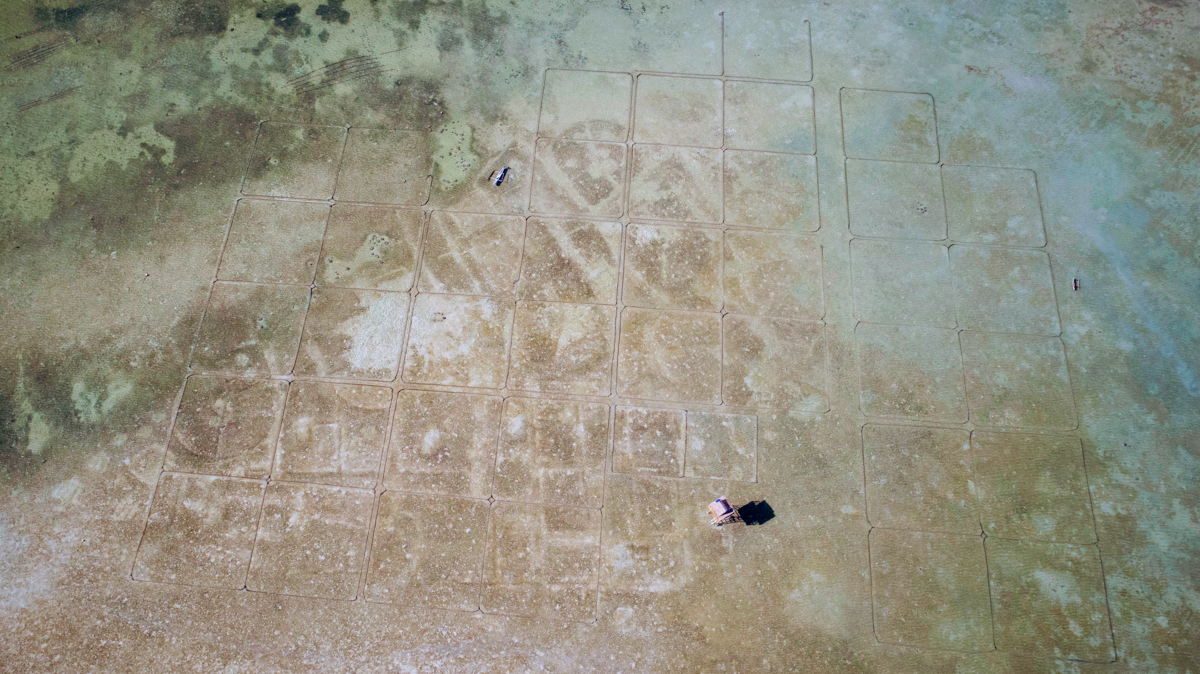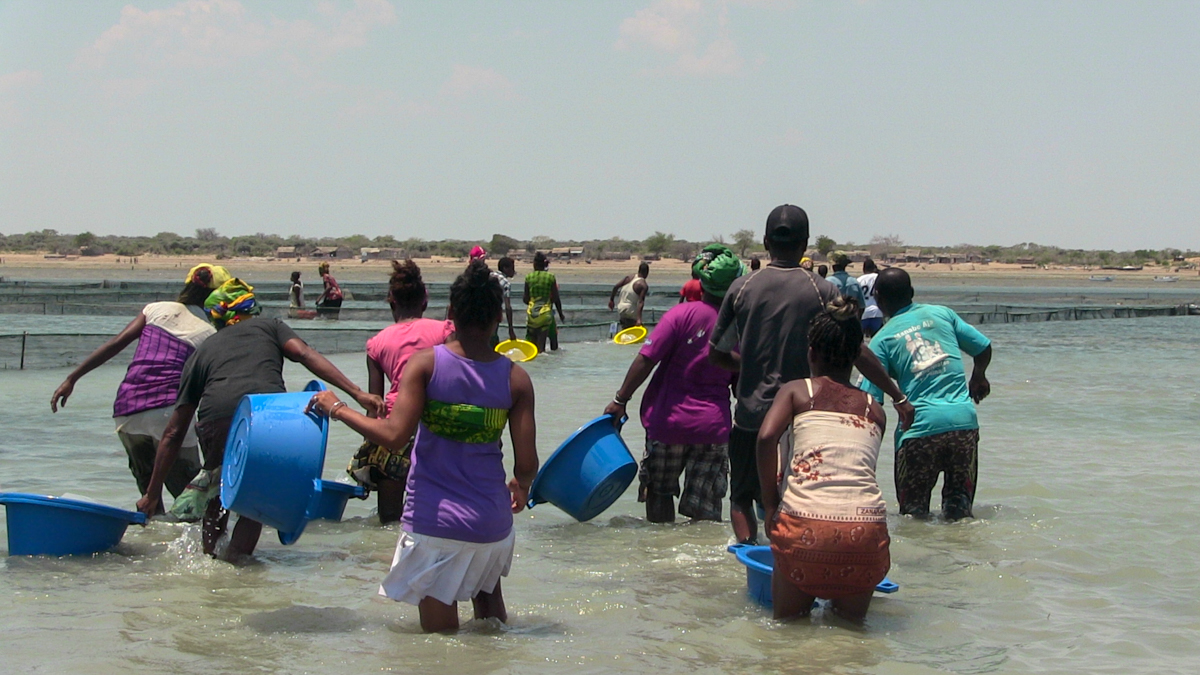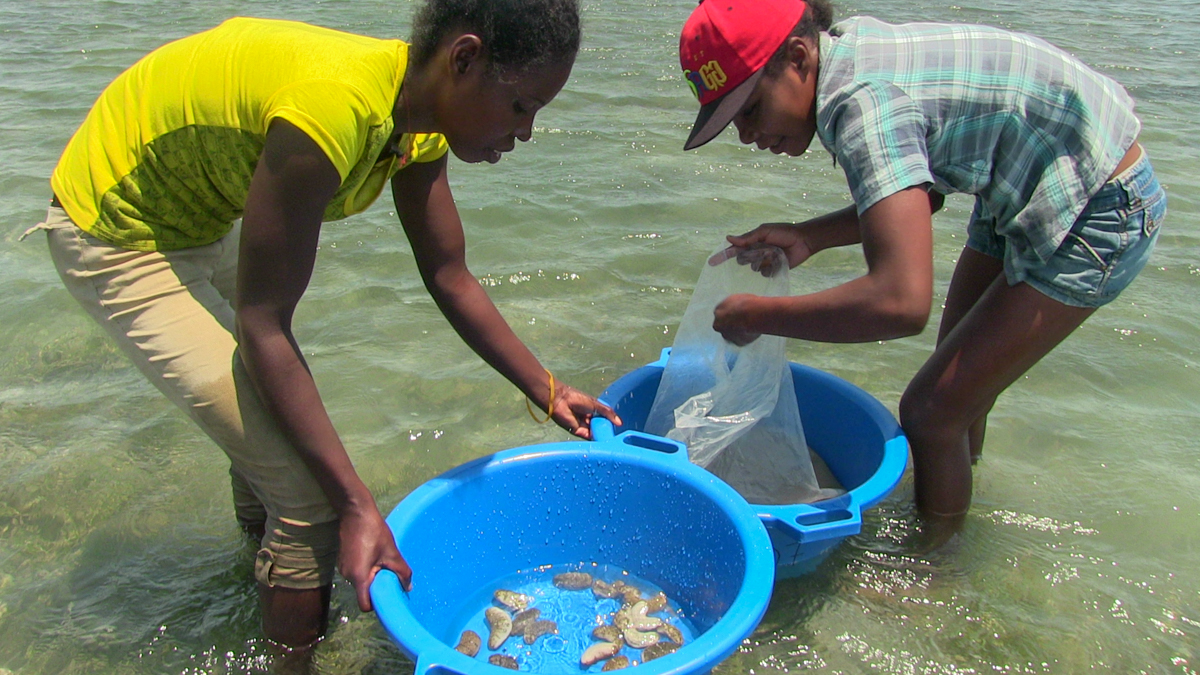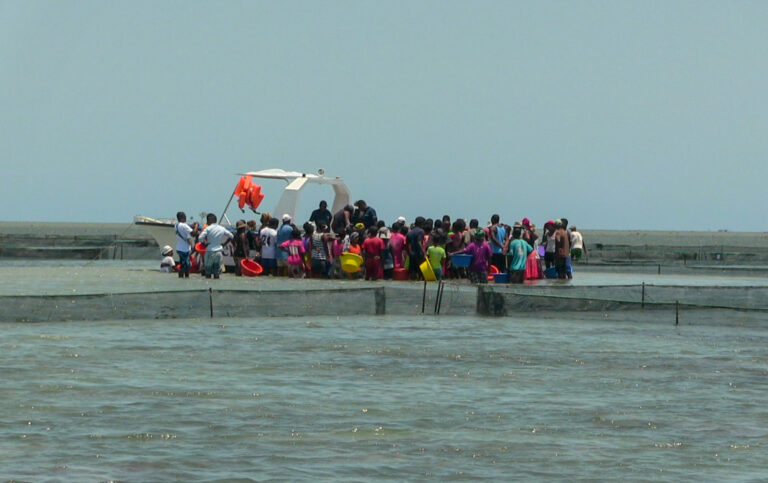In January 2018 the Tampolove community began stocking their redesigned aquaculture pens with sea cucumber juveniles as part of an innovative livelihoods project within the Velondriake locally managed marine area (LMMA) in southwest Madagascar.
Since then, the community has been stocking new juveniles every month, and on 11 November enough sea cucumbers had reached an appropriate size for the first community harvest since the project was redesigned and upgraded in 2016-2018.
Sea cucumbers have highly variable growth rates, with opposite ends of the spectrum referred to in the aquaculture industry as ‘shooters’ and ‘runts’. For this long awaited first harvest, the Tampolove community collected the ‘shooters’ first, which had reached harvest size many months before their slower growing companions.
With support from Blue Ventures technicians, the community harvested all the sea cucumbers over 400 grams over the course of two nights. Everything went smoothly and according to plan, and in total the community was able to sell 800 sea cucumbers back to our commercial partner and juvenile supplier: Indian Ocean Trepang.
Over the coming months, the bulk of the slower growing sea cucumbers will also reach a harvestable size, making the farms fully operational. Once this occurs, the farmers will be able to sell consistently high numbers of sea cucumbers, and the newly formed farmers association will be able to cover the operational costs within this community-based sea cucumber farming model.
Expenses such as pen maintenance, wages for guards and the cost of juveniles will be deducted by the farming association from gross earnings before the farmers receive their incomes. The association has also developed a savings fund to be used for community development projects such as well building, school repair and health services and supplies. Thanks to the regular stocking of new juveniles, this new source of community income and investment should be regular and reliable going forwards, benefitting the whole community and not just the farmers.

Ten people from four villages in the north of Velondriake visited Tampolove on a learning exchange to witness this first harvest and sale of sea cucumbers. Their communities had completed their own first stocking of juveniles less than a month previously in newly constructed sea cucumber pens near the village of Ambolimoke.
There are 80 sea cucumber farmers who operate 40 sea cucumber pens in the Ambolimoke farming site. These farmers originate from the villages of Bevato, Antsatsamadinka and Belavenoke, all within walking distance of the Ambolimoke site. All of these farmers were trained in sea cucumber aquaculture, and signed lease agreements similar to those used in Tampolove, establishing their maintenance, monitoring and security duties. The agreements also state that a farmer will lose their sea cucumber pens if they break specific dina (community-based laws) such as using poison-fishing practices.
These four communities gathered to celebrate the first stocking of juvenile sea cucumbers in the Ambolimoke farm in November 2018. Blue Ventures volunteers were also present to witness this stocking and experience community-led resource management. There was a fomba (a traditional thanking of the ancestors), and speeches from Velondriake Association representatives and local authorities, before 150 juveniles were stocked in each pen. Like in Tampolove this stocking will now be repeated every month.
The day ended with dancing and festivities as the communities celebrated their new venture. This excitement and anticipation built further after the 10 community members returned from their learning exchange in Tampolove with the news of the successful sea cucumber harvest and sale.


For more information, contact National Aquaculture Programme Lead Tim Klückow
Watch a short film from Deutsche Welle: Aquaculture saving the economy in Madagascar
Cover photo: Paul Antion
The BV aquaculture programme and team would like to sincerely thank and acknowledge our principal partner Norges Vel for their contributions to the development of the community-based sea cucumber farming model.
Many thanks to our commercial partner Indian Ocean Trepang, and thanks to FAO Tanzania, Korea International Cooperation Agency and the Government of Zanzibar for supporting this learning exchange, and thanks to NORAD for supporting our aquaculture work.

Blue Ventures benefited from the support of the Prince Albert II of Monaco Foundation www.fpa2.org, in collaboration with the University of Edinburgh.























